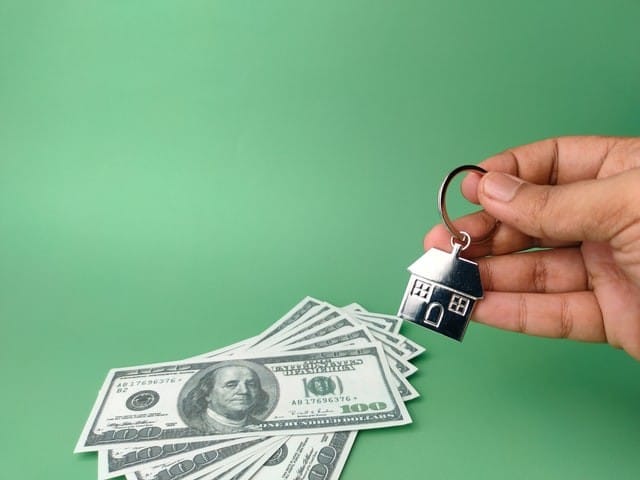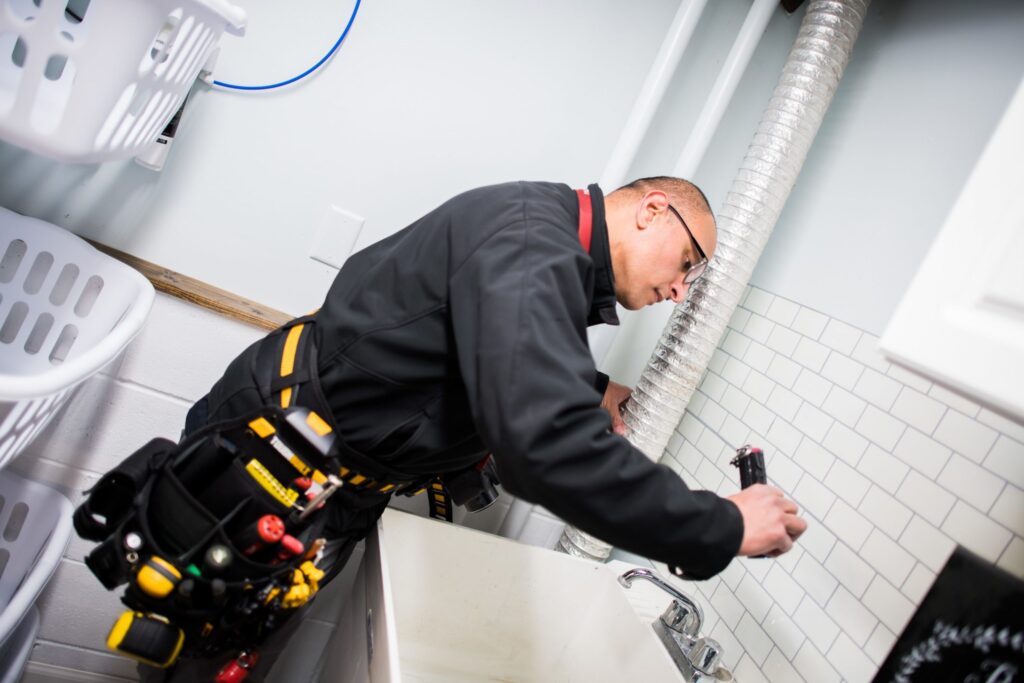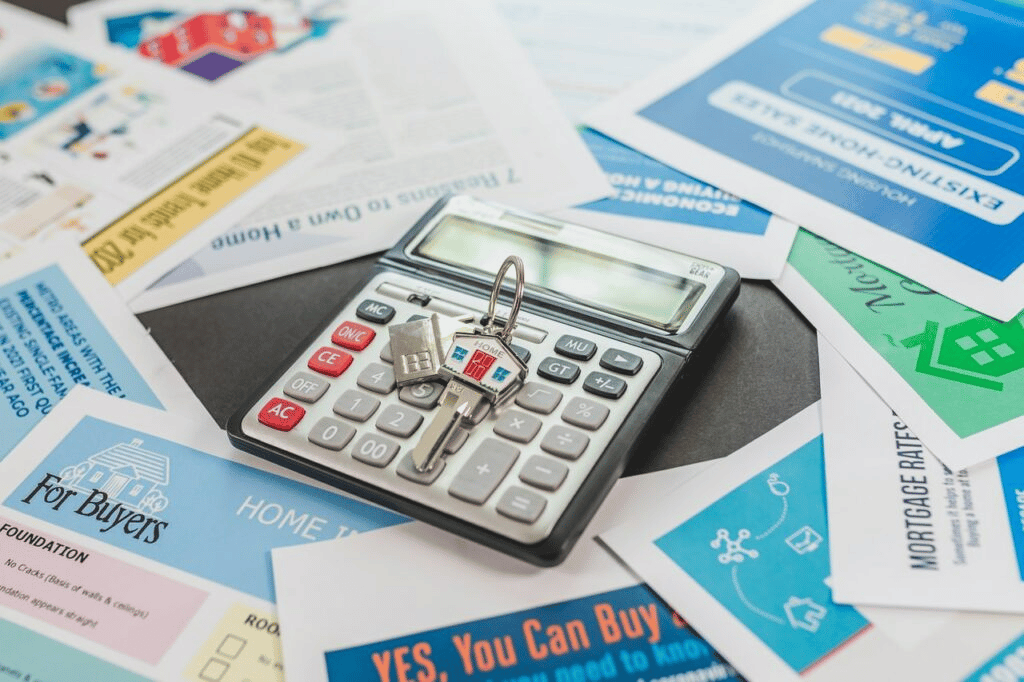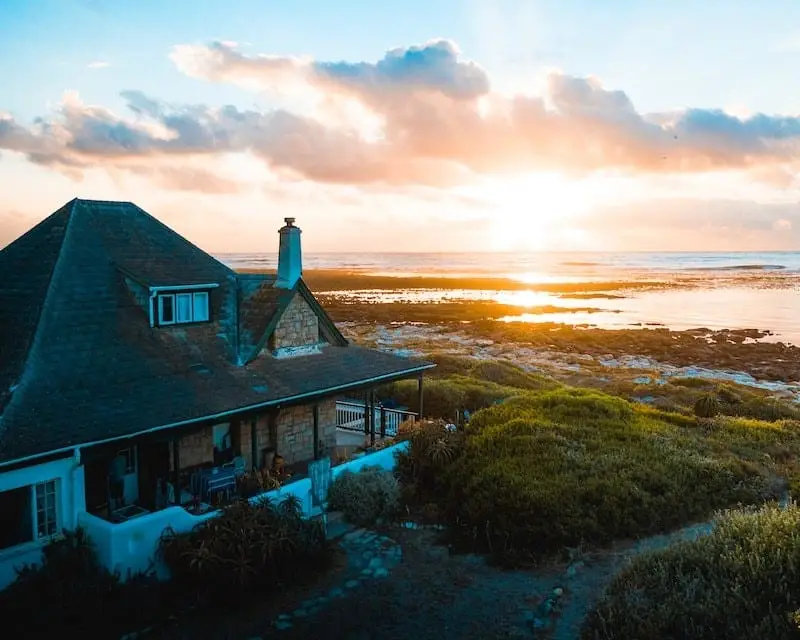If you dream about buying a vacation home, you are not alone. Second homes make up 5.4 million of those homes nationwide. Surveys show that Americans who do not already own a second home are more likely to want one today than before the pandemic.
A second home could be a beach house, a high-rise condo, or a cozy cabin in the mountains.
Purchasing a second home can be wise if you’re looking for an investment, a vacation home, or a place to retire. Before you dive into the nuts and bolts of second home ownership, it’s essential to understand the pros and cons of such a big decision.
This guide covers some crucial things you should know before taking the plunge, so read on to learn more.
What is a second home?
A second home is an extra piece of real estate you own, but it’s not your primary house. It could be a vacation home or an investment property if you intend to rent it.
The IRS defines a second home as a property you live in for more than 14 days per year or 10 percent of the total days you rent it to others. Mortgage lenders consider a property a second home if it is a one-unit that isn’t subject to timeshare requirements.

Advantages of owning a second home
Buying a house is a personal experience, and there could be many reasons why you’d want a second home, such as:
Investment
Buying another home can garner a decent profit if you rent it out or sell it in the future. Many buyers buy a second property when the market conditions are good. Low mortgage rates and reasonable prices can make a second home a good investment.
A place to retire
Perhaps you live in a cold climate, but your dream is to retire somewhere on a sunny beach. If you have the means, purchasing another home in your prime location can be a good option. Once you reach retirement age, you can sell your primary house and move into another home.
Extra income
Selling your second property is a good investment for the long term. Yet, keeping it can also bring you some decent residual income. You can rent your second home long-term or as a vacation property/timeshare during the busy season.
Tax deductions
If you charge rent on your second home for no more than two weeks per year, the interest on the mortgage and the property taxes is fully deductible from your gross income. Many people who own second homes keep them unoccupied when they don’t use them.
Review IRS Publication 527 on vacation rentals if you need help figuring out what you can deduct. You should consult with a tax professional if you have questions.
Convenience
When you own a second home in a vacation destination, you don’t have to pay for expensive hotels. You can also store your sports gear, like skiing, or snowboarding, which makes packing easier. You can make impromptu trips to your property without carrying much baggage.
A gathering place
One of the most significant benefits of owning a second home is that you can use it to gather with your friends and family. Whether you want to celebrate your friend’s birthday or the Fourth of July, a second home is a convenient place to mark a special date.

Seven considerations before buying a second home
Before you buy a second home, think about the responsibilities that come with it. From filing your taxes to scheduling maintenance, here’s what you should consider:
Financial impact
When you own a second home, you are responsible for all repairs and maintenance. If your second home has issues with plumbing or electrical, you are on the hook for repair costs.
Hire a licensed home inspector before buying a property to avoid surprises. Create a budget for expenses like HOA fees, utilities, and maintenance.
Take a good look at your finances to ensure you can afford a second mortgage and maintenance costs. Here are some of the questions you should ask yourself:
- Do you have significant credit card debt?
- Are you making payments on car loans or student loans?
- Do you have an emergency cash fund for any emergencies or unexpected expenses?
- Do you have any financial obligations that could make it difficult to make mortgage payments and maintain your second home?
Consult with a financial advisor before you begin house hunting.
The right time to buy
Determine when to buy your second home based on the area and the current market.
For example, homes in Florida could be selling for a premium all year round, while houses in North Dakota sell for less during the winter months. You’ll also want to hire a reputable real estate agent with a good track record. Your agent should be familiar with the area and understand local market conditions.
Location of your property
The location of your second home affects how long you want to live there. Look at the area you’re interested in and think about what it will look like in the future. Consider the weather during all seasons. Do you want to stay there if the winters are snowy or the summers have hurricanes?
Ability to travel
Before buying a second home, think about if it could compromise your ability to travel. Purchasing a second home in a specific location makes sense if you frequently visit it. But if you go there only once every couple of years, it could be hard to justify the expense of buying a second home.
While it’s great to be near a beach or mountains, you also need access to amenities and transportation. These features could make your home more appealing to potential buyers and renters. But most importantly, they will make your stay a lot more enjoyable.
Investment property vs. vacation home
Determine whether you’re planning to buy a second home as an investment or if you want to use it as a vacation home. It will play a role in how much you’re willing to pay and what type of financing terms you can accept. It also has implications for your taxes and overall budget.
IRS classifies a vacation home as a personal residence or a rental property. If you limit renting it out to 14 days or fewer per year, it’s a private home. If you rent it for more than 14 days, it’s a rental property.
Know what to look for in your second home
Think about what you’re looking for in a second home and make a list of your must-haves. A high-rise condo overlooking the beach sounds nice, but it might not work later if you realize that you’d rather live in a house with a big backyard. Write down the qualities you’re looking for in a second home to help narrow down your choices.
Equity appreciation potential
The potential for building long-term equity is a significant benefit of owning a vacation home, according to Redfin.
A continuous appreciation of your second home’s value is never a guarantee, as it can be affected by the economy and local real estate market. Study the local real estate market to see the trends over the last few years.

Financing a second home
You’ll need to finance your second home unless you plan to pay in cash. Here are some things to keep in mind when obtaining a mortgage.
Know how to budget
Consider all the expenses associated with a second home, including the down payment, maintenance, and taxes. Factor all the costs into your budget, and ensure you only buy a house you can afford. Going over budget can backfire and leave you in a tight spot if you face financial hardships later.
Understand the mortgage and loan options
You will need a mortgage for your second home unless you plan to buy it with cash.
The National Association of Realtors (NAR) survey shows that nearly half of all vacation home buyers and investors finance up to 70 percent of their purchases.
Like any traditional mortgage, a bank will look at your financial situation to assess whether you can make monthly payments.
Still, there are some differences between a second-home mortgage and a primary house mortgage.
Your primary mortgage allows you to put down as little as 5 percent, depending on your credit score and other factors. You will likely need to put down at least 10 percent on a second home. Lenders look for a higher credit score on a second mortgage because it adds more financial pressure for a buyer.
Talk to several lenders to determine which type of loan will suit your situation the best.
Home equity credit lines of credit (HELOCs)
A HELOC, or home equity line of credit, is also an option. If you have enough equity in your primary residence, you can take out a line of credit to make a down payment on a second home. Under this scenario, you don’t need to refinance your current mortgage.
Using HELOC requires a great deal of discipline. HELOCs allow you to make interest-only payments during the draw period and offer easy access to cash. Buyers should always think about the potential impacts when using this option.
Learn about taxes on a second home
You don’t need to report income if you rent out your second home for fewer than 15 days during the year. But in this case, you can’t deduct expenses associated with the rental. You can claim the regular deductions for mortgage interest and real estate taxes.
If you rent out your vacation home for 15 days or more, you must report the rental income on Schedule E of your Form 1040. Expenses that you report should be prorated between personal and rental use. Some rental deductions are limited to the gross income of the property.
If the home is considered a residence, the expenses you deduct can’t be more than the rental income. If the house isn’t a residence, the costs you remove can be more than the rental income.
The personal portion of mortgage interest and real estate taxes may be deductible on Schedule A as an itemized deduction.
Hire a home inspector
Before you make a final decision, hire a licensed home inspector. A home inspection is not a required step in the home-buying process, but it can help you to avoid buying a money pit. A home inspector will look at a home’s major components and generate a report based on their findings. You can you this report to negotiate with the seller.
Negotiate with the seller
Make sure you negotiate with the seller before you make an offer. If the home needs repair, ask the seller to lower their asking price. You should also do your best to get a great deal on the home based on the current housing market and mortgage rates.

Maintaining a second home
Your second home could fall into disrepair because you spend less time there. If you don’t visit your property regularly to check on things, repair issues could crop up over time.
You’ll want your second property to be well-maintained, so keep these tips in mind.
Get a home in good condition
Newer homes need a lot less work than fixer-uppers. Try to find a piece of property that won’t need a ton of repairs or a major overhaul. If you find the property you like, check its condition before proceeding with the purchase to avoid costly repairs.
Cut expenses
You can upgrade appliances and the HVAC system to more energy-efficient options to save on utility bills. You should also ensure the home is well-insulated and the roof is in good condition.
Find out what maintenance your property needs
Remember that a lake or beach house will need more work than a small apartment. A single-family home in the suburbs may require more maintenance than a condominium. An HOA can be helpful if you want someone to do the landscaping and general maintenance for you.
Hire a property management company
Hire a reputable property management service to maintain your second home. A property management company is a good option if you use the property as a rental home and have tenants.
A rental management company can conduct regular checks and respond to emergencies. These companies can also arrange cleaning and hire maintenance workers for repairs.
Install a security system
A quality security system will help you keep track of your property while you’re away. Consider alarm monitoring services that will alert you and contact the authorities in an emergency.
Enlist the help of a local housekeeper
Paying your neighbor or local housekeeper to check on your property could be a good idea. Depending on your property’s type and location, you could ask to turn on the heat and open the faucets. This an excellent way to avoid significant problems as your housekeeper could help you to catch issues early on.

Renting out your second home
Second homes are vacation homes that owners occupy for more than 14 days per year while maintaining a primary house. Before renting out your second home, create a strategy to make the process easier for you and your tenants.
Keep these tips in mind if you use the home as a rental property.
Prepare the property for a rental market
Make sure that your property is ready for renters before you have them sign a lease. Update fixtures and put a fresh coat of paint to create a welcoming environment for your prospective tenants. If you live away from your second home, find someone who can maintain it for your tenants. A property management company can help ensure the home is clean and safe.
Have a rental plan
Put a rental budget together, so you’re asking for a high enough amount to cover the mortgage and recurring expenses. If a homeowner’s association exists, make sure that your renters know them. You’ll also need to factor the monthly HOA fees into your budget and how much you charge for rent.
Consider safety
You’ll need insurance on your second property, but if renting it out, you may also need landlord insurance. Consider getting a home warranty to protect yourself from significant expenses and potential liabilities. Have a home inspection before renting the property to ensure everything is safe and works well.
Think about the financial implications
Renting a home has different tax implications, depending on the type of property and its location. Some destinations offer year-round opportunities if you want to rent out your home. But before you do that, talk to a real estate professional.

Selling your second home
Remember these critical factors when the time comes, and you’re ready to sell your second home.
Tax consequences
You may need to pay capital gains taxes if you sell your second home, which could take a chunk of your profits. Talk to a tax professional to find out how it works. Ensure you understand the pros and cons of these taxes to understand when you should sell and when you should wait.
Capital gains
Capital gains tax applies when you sell an asset for more than you paid. The IRS offers an exclusion for capital gains from selling a primary home. The rules work differently when you sell a property where you don’t live full-time. Capital gain tax is inevitable when selling a second home, but that doesn’t mean you should pass up an opportunity to make money.
To determine how much you owe in capital gains tax when selling a second home, you should calculate the actual profit from the sale. Determine your cost basis in the property, which means how much you paid for it and how much you invested in it while you owned it.
The amount of capital gains tax you will pay on the sale of a second home depends on the following factors:
- How long you owned the property
- What you paid for it
- What profit you made from the sale
- Investments in the form of repairs and upgrades that you’ve made
- Your filing status and income
- The applicable gains tax rate
Capital gains tax can be calculated at short-or long-term rates. The short-term capital gains tax is the same as your ordinary income tax rate determined by your tax bracket. A gain is short-term if you hold the asset for less than one year before selling it.
The best time to sell
Determine the best time to sell it based on the market, the local area, and other factors. Hire a reputable real estate agent who can market the property and sell it for a top dollar.
Preparation for sale
Hire a professional cleaning crew to prepare your property for the market. It could be a good idea to hire a home inspector to conduct a pre-sale home inspection. This type of inspection is not mandatory but can help you determine your house’s condition. Doing so will help you to avoid surprises and better market your property.
Whether you want to get a place for family vacations or make an investment, owning a second home is a great idea. Think about what kind of property you want to buy and how you want to use it. Keep your second home in good shape, and you’ll have a wonderful place you can call home outside your primary house for years to come.

